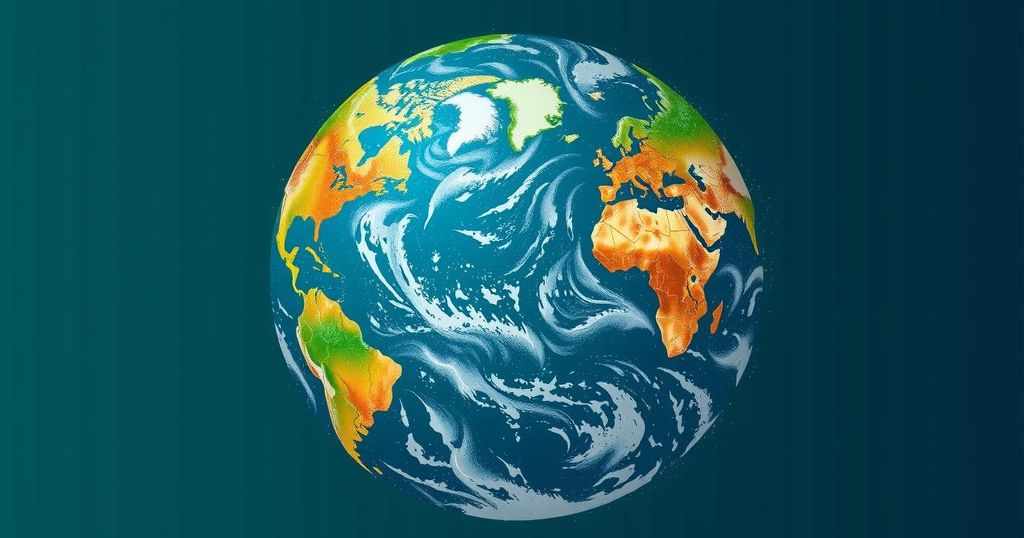COP29: Wealthy Nations Commit $300 Billion for Climate Finance Amidst Criticism

On November 24, COP29 resulted in a climate finance deal where wealthy nations committed to $300 billion annually to aid poorer nations, a sum criticized as insufficient by many developing countries. Despite increased funding, the final agreement did not meet the demands of developing nations, leading to accusations of bad faith negotiations by wealthier countries. The deal aims for a broader $1.3 trillion target for climate response, signaling ongoing discord over equitable financial contributions in the face of a climate emergency.
On November 24, nearly 200 nations reached a contentious agreement during COP29 in Azerbaijan, committing wealthy, historically polluting countries to contribute $300 billion annually to assist poorer nations confronting the impacts of climate change. This agreement emerged from intensive negotiations that took place over two weeks, characterized by high tensions and instances where talks nearly collapsed. Although the final deal marked an increase from previous commitments, many developing nations criticized it as inadequate, claiming that their demands for at least $500 billion per year were overlooked.
The approved pact mandates developed nations to pay a minimum of $300 billion yearly by 2035, a significant rise from the current commitment of $100 billion, which is set to expire. However, this offer was sharply condemned as insufficient by numerous developing countries. Indian delegate Chandni Raina characterized it as an “optical illusion” that fails to address the climate crisis’s magnitude. Similarly, Sierra Leone’s climate minister highlighted a “lack of goodwill” from wealthier countries, and Nigeria’s envoy labeled the agreement as “an insult.”
Throughout COP29, considerable criticism was directed at developed nations, accused of negotiating in bad faith amidst rising climate disasters this year. UN climate chief Simon Stiell recognized that while the deal was imperfect, it represented a necessary step forward. Furthermore, UN Secretary-General Antonio Guterres expressed disappointment at the lack of ambition but suggested that it could serve as a foundation for future negotiations. Despite contrasting perspectives, US President Joe Biden referred to the agreement as a “historic outcome,” signaling a potential shift in climate financing.
The deal sets a broader target of $1.3 trillion per year to combat climate-related challenges, with most funding anticipated to derive from private sectors rather than government contributions. As the world faces unprecedented climatic shifts, the disparity in financial obligations between developed and developing nations continues to spark debate and demand for more equitable solutions.
The COP29 negotiations were marked by a backdrop of increasing urgency as the climate crisis presents existential threats globally. Developing countries, particularly those most vulnerable to climate impacts, have long advocated for higher financial contributions from wealthier nations, which have historically contributed the most to greenhouse gas emissions. The agreement reached reflects ongoing tensions between developed and developing nations over adequate climate finance and responsibility sharing, critical aspects of international climate agreements. This discussion is essential not only for immediate climate action but also for the long-term sustainability of global environmental policies. As extreme weather events become more frequent, the demand for substantial and equitable financial support is intensifying.
In conclusion, the climate finance deal reached at COP29 signifies a step forward in addressing the funding needs for developing nations grappling with climate change impacts. While the agreement commands a higher financial commitment from wealthy countries than before, the dissatisfaction expressed by developing nations illustrates the continued challenges of achieving equitable climate solutions. The criticism from delegates around the world highlights the urgent need for comprehensive strategies and commitments that genuinely respond to the global climate crisis’s severity. Disparities in financial responsibilities remain a core issue for future negotiations.
Original Source: www.lemonde.fr






